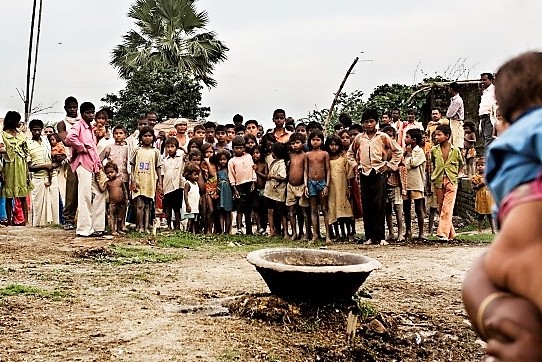
NGO Committee | 10 years on and anti-discrimination network still blocked from UN consultative status
The UN's NGO Committee starts its first 2018 session on Monday. Over the following 10 days it will consider the applications of over 480 NGOs for UN accreditation. These include applications from human rights organisations that have faced long delays and deferrals at the hands of the Committee. The International Dalit Solidarity Network (IDSN) is one such case. Below IDSN describes its experience of seeking entry to the United Nations.
Update: India asked a further questions of IDSN, taking the total number to 83 questions over 10 years. No State spoke up to challenge this or make any reference to the decade that this NGO has been on the books of the Committee. There was no intervention by observer Denmark, the country from which IDSN operates, or from the EU.
The application for UN consultative status of the International Dalit Solidarity Network (IDSN) has been blocked in the UN NGO Committee for 10 years. Working out of a small secretariat in Denmark, IDSN works for the elimination of caste-based discrimination, affecting the rights of 260 million people across the globe. IDSN works in full alignment with the principles and spirit of the UN, yet has the longest pending application in the history of the Committee.
In January 2008, IDSN applied for ECOSOC consultative status in order to facilitate the participation of Dalits in UN events and consultations – especially in relation to the UN Human Rights Council. The work of IDSN fully conforms with all requirements for the granting of UN ECOSOC status. Over the last 10 years, IDSN has received 82 questions all from one Committee member, India. A request for a written response to questions generally means the case is deferred to the following session of the Committee. Despite the fact that IDSN has answered all questions in full and in good faith, their application has been deferred over and over.
IDSN is a highly respected network whose international associates include numerous UN-accredited global human rights NGOs. The UN’s ex-Special Rapporteur on freedom of association and assembly, Maina Kiai, criticised the NGO Committee’s blocking of IDSN’s application on many occasions, calling it ‘clearly unacceptable, wrong and unfair,’ and using it as an example of a particularly troubling case of the silencing of human rights organisations that expose human rights abuses.
IDSN was founded in 2000 by Dalit organisations based in caste-affected countries and by key international human rights organisations in order to gather international-level solidarity and support for their struggle for equal rights and justice and to hold States accountable to their human rights commitments.
At the core of IDSN’s operations is the principle that Dalits represent themselves in international fora and present their concerns with their own voice. In order for IDSN to put Dalits forward on speakers’ lists and in other capacities at the UN, it is vital to have ECOSOC status – without it, they will have to have their voices mediated by other organisations, as their ‘guests’.
Caste-based discrimination is often referred to as a hidden apartheid, because it is based on a system of social segregation designating some caste groups as being worthless or even being ‘untouchable’ or polluted, and therefore not attaining the same rights and privileges as others.
Access to justice is a key challenge for Dalits across caste-affected countries. This, coupled with the social, economic and cultural marginalisation faced by Dalits, make this group particularly vulnerable to human rights abuses including slavery, rape, and violence. It also creates serious obstacles to education, decent employment, proper health care and other key services. Dalit women are particularly marginalised as they face multiple discrimination. It is vital for IDSN that their voices are heard at the UN without filter or mediation.
As a small organisation without significant financial or political capital, IDSN has not been able to break the deadlock at the NGO committee and needs the support of ‘human rights friendly’ countries who believe in the right of those affected by human rights abuses to speak for themselves at the UN.
Find more information on IDSN’s 10-year struggle for UN consultative status on www.idsn.org/ecosoc
Photo: Jakob Carlsen/ IDSN
